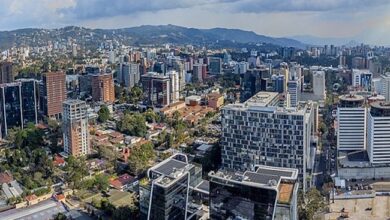
Every developed country is importing cheap labour, yet all too rarely are the pro and con arguments discussed with real profundity.
The path-breaking book “The British Dream” by David Goodhart, the founder of the intellectual magazine, “Prospect”, dared to deal with the shibboleths. There are many commonalities in Britain that apply to countries as varied as France, the US, Thailand and Qatar.
Goodhart’s conclusion about immigration is that what we might generalize and call the “working class” point of view is essentially correct: “We have had too much of it, too quickly, and much of it, especially for the least well off, has not produced self-evident economic benefit.”
This viewpoint is anathema to the liberal intelligentsia, businesses and many governments. In Britain, after years of gate-closing under Prime Minister Margaret Thatcher, Tony Blair, a well-trodden liberal, opened the gates wide. Businesses could smooth the wheels of the economic motor with workers prepared to work for lower wages, work night shifts, do the unpleasant jobs and thus grease the wheels of the economy. Liberals focussed on the argument about giving a helping hand to some of the world’s poor and led to a welcome broadening of the culture with new foods, restaurants and music.
Besides, liberals can argue persuasively that racial hostility has declined over the 60 years of immigration. Munira Mirza, one of the deputy mayors of London, said, “Racism still exists, but things have improved to a point where many ethnic minorities in Britain do not experience it as a regular feature of their lives.” Even the hierarchy of the once quasi-racist Conservative Party is replete with black and brown faces.
But there is another side of the coin- and I say this as someone who lived in a working class cum immigrant, non-gentrified, poor neighbourhood of London for 14 years- that doesn’t shine so bright. The native working class has had to carry the load. It is their schools which have had to deal with an influx of non-English speakers, workplaces that are no longer so easy to socialize in, jobs whose wages don’t seem to rise as much as they should and pubs and football stadiums that are no longer “theirs”. What is impressive is how self-controlled the racism that immigration produced has been. Neo-fascist, anti-immigrant, political parties and movements have not done well.
There have been some notorious cases of racist murders, racist chanting in football stadiums and serious police misbehaviour but over the years attitudes have improved as a new generation of whites, more used to having non-white people around them, have matured.
It has taken a long time to get from birth to maturity and there have been many casualties along the way. Many if not most working-class people, even if their everyday behaviour no longer shows it so markedly, feel they have been sold out. They believe that without immigrants their wages and job opportunities would have been better (which they would have been in certain industries), schools would not be so overcrowded and demoralised, crime rates would be lower, and the welfare rolls would be much reduced.
Some of this over the years has been sheer prejudice and racism. New immigrants are rarely committing crimes and they are young so don’t use the social services as much as locals. But it is true that as a discriminated against second generation grew up and didn’t share their parents’ “a job at any price” mentality, too many took to crime and rough behaviour. Muslim immigrants- except Sikhs, Gujaratis (from India) and former East African Asians- especially those who have come from off-the-beaten-path villages, have been allowed mistakenly to withdraw into cultural- and often geographic-ghettos.
Immigrants do age. So over time they have become a greater burden on the social services. The “cost free” price of the new immigrant is dissipated- which is why those who argue that to combat an ageing native population we need more young immigrants have simplified their maths. More immigration is self-defeating because as these new immigrants become old then even greater numbers of new immigrants will be needed, almost to the point where natives are no longer a majority in their own land- and that really is a recipe for a social crisis. The German government has just put out a flag saying, “we want more immigrants”. Are the Germans thinking ahead? Maybe 10 years, but not 30.
Is there a solution to the stresses and strains of immigration? It is to continue with anti-racist government policies, to raise the retirement age fast- to 70 immediately- so new immigrants are not so needed, to improve low paid jobs and job-retraining so natives will want to take them, and to be tougher about immigrants ignoring the home culture of the receiving country, and to give aid and encourage trade so sending countries can develop. (No longer is high growth Mexico exporting migrants to the US.) Why should the native working class pay for the educated liberals’ dreams?
Finland, an advanced economy, manages quite well with very few immigrants. The rest of the industrialised world could easily survive and survive well without more. (Immigrants who are refugees from war and persecution are another matter.) Over the long run if the rich countries allow less immigration this will be to the benefit of the sending countries as long as there is more aid and investment in the villages of the Third World.




